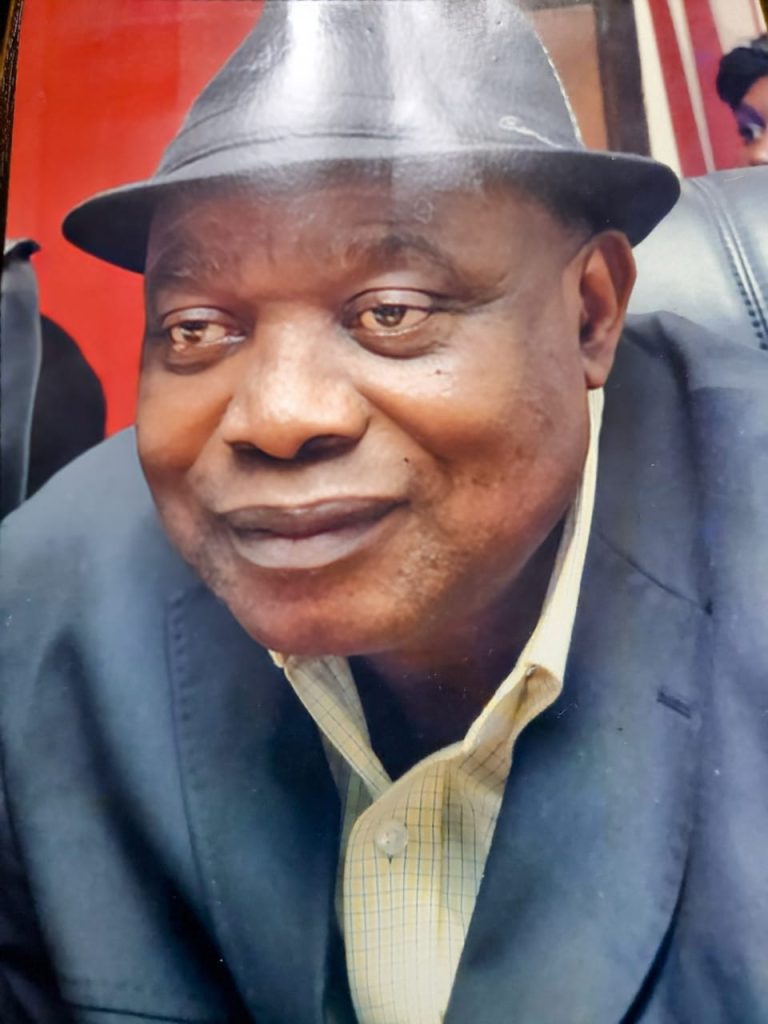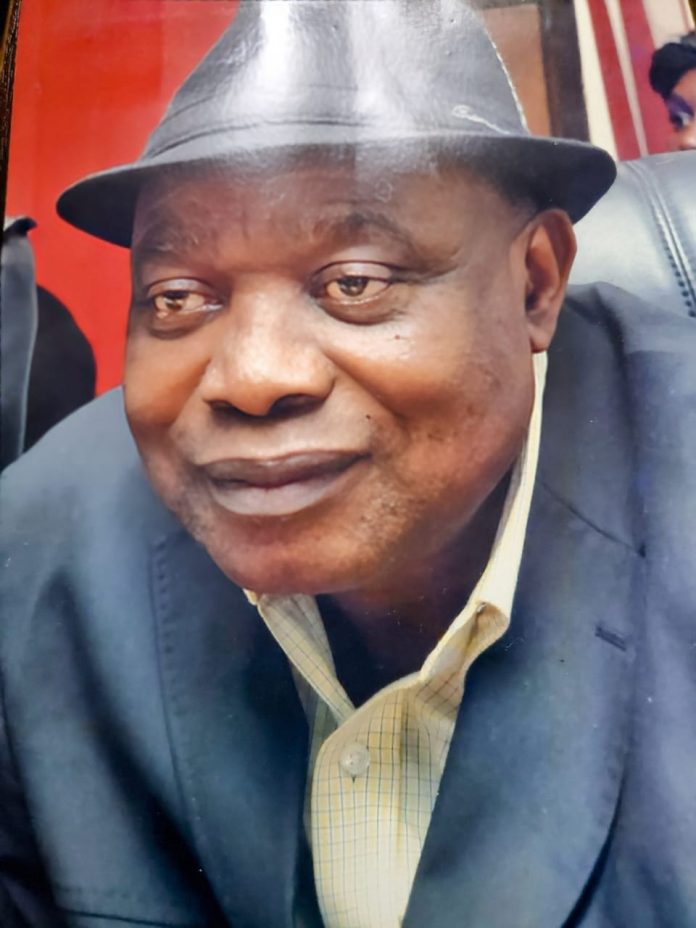
By Sir Folu Olamiti, FNGE
It was happenstance I least expected that Monday morning of 1999. I had dressed up to go to work as Editor of Nigerian Tribune from my new home at the outskirts of Ibadan, the Oyo State capital. Moments later, Justice Ayoola drove in in his yellow 19th century Mercedes Benz car. He alerted to discuss heartily with one of my neighbors. He was obviously in an expansive mood that morning.
I greeted him with reverence he deserved as a man of his stature and standing in legal jurisprudence and society in general.
“Are you the editor I was told, has this imposing building?” he asked with a smile across his lips.
I chuckled and nodded affirmatively. He shook my hands and started discussing with me as if we had met a decade before. He told me of his undeveloped land behind my house. We bantered a while, then he drove off
It would take two solid years after that chanced engagement before we would meet again.
However, a divine intervention came in 2003 and shattered the lull in our relationship.
Then, President Olusegun Obasanjo nominated me as a member of the Presidential Action Committee on firearms and light weapons. Justice Ayoola was named as chairman of the committee. His appointment as chairman marked the beginning of a bond that would last till he passed on August 20, 2024, at the age of 90.
The chemistry between us became stronger and solidified by the fact that we were both from Ibadan. Besides, I had more time to play with as I had just resigned my appointment with the Nigerian Tribune after 32 years of meritorious service to the company and my country. Leaving my job at Nigerian Tribune Newspapers without pension made my future look very bleak.
But God brought Justice Ayoola as my guiding Angel as he used him to reassure me about the future, a future pregnant with opportunities. He took me not just as a member of his great family but as a close one at that. He made sure I lacked nothing, always meeting me at every point of need throughout the two years that I served on the committee.
The Committee’s assignments took us to all the 36 states of the Federation. It afforded me another opportunity to know every nook and cranny of Nigeria . My first opportunity was with Chief Obafemi Awolowo during the 1983 general elections.
I never traveled alone. I was always riding in the same vehicle with Justice Ayoola. We were so close. As the assignment wound up, I began to have a sense of foreboding, thinking that the committee’s assignment would be the last close tie that I would have with Justice Ayoola.
How wrong I was. When he was appointed as Chairman of the Nigerian Human Rights Commission, he beckoned on me again. Though his stay on that beat was brief as President Obasanjo appointed him as the second Chairman of Independent Corrupt Practices and other Related Offenses Commission, ICPC.
It was a tug of war between him and the presidency before Justice Ayoola could accept the offer. He had just been offered a juicy and respectable appointment at the World Court in Hague. To discourage President Obasanjo from looking his way on the ICPC offer, he created some obstacles. He forwarded somewhat impossible conditions to the presidency, including his acceptance of the job at The Hague. He told me that he didn’t see how those prayers would be granted.
So, he waited. The response came the third day, and all the prayers were granted. President Obasanjo was looking for a transparent and incorruptible person to take over from the late Justice Mustapha Akanbi, the pioneer chairman of the ICPC, who rejected a second term in office.
Justice Ayoola became an ICPC Chairman in 2005 and turned things around for better in the fight against corruption. The assignment was easy for him as he told me: “I wrote 80 percent of the charter for the establishment of ICPC.” He said he did it pro bono because Justice Akanbi was one of his closest friends.
There were many challenges in the task of fighting corruption. He witnessed many battles of how corruption was fighting back from every sector . Justice Ayoola was undaunted. Most garrulous elements were firing from the corridors of power from the presidency and in the main the National Assembly, even to the point of blackmail. Justice Ayoola stood like a rock. He was undaunted. He stood his ground. During the period he was on assignments to the Hague with operational seat in Sierra Leone, Justice Ayoola ensured he put in place an iron cast structure at ICPC that made it easier for him to closely monitor activities at the headquarters in Abuja .
At the initial stage, my position and duties at ICPC were not clearly defined. However, after a few months of deliberations, the then Secretary to the Commission, Dr Tukur Ingawa, came up with the designation of Resident Consultant Media and Event. I became the first occupant of that office.
Justice Ayoola pampered me at ICPC to the extent that members of staff nicknamed me 2ic. I rode in the same official car with him in the morning to the office and back home at the close of work. Our frequent traveling from Abuja to Ibadan was most pleasurable as we gisted and brainstormed on so many issues I could not disclose here. I’m saving that for my next memoirs . God willing.
Justice Ayoola came up with a novel idea of fighting corruption through preventive mechanisms, using it in pari pasu with arrest and prosecution of alleged corrupt elements. As an offshoot of preventive mechanism, came the National Anti-Corruption Volunteer Corps NA VC, of which I became its grand commander.
Shortly after President Obasanjo tenure ended, Justice Ayoola made up his mind to quit. It was a tug of war between him and the late President Musa Yar’adua. Obasanjo told President Yar’adua that Justice Ayoola insisted on quitting at the end of his President Obasanjo’s tenure so he can face his international assignments at The Hague with every sense of responsibility.
But President Yar’Adua, like Obasanjo, refused to let him go. He, therefore, stayed on to complete his first term in office. Sadly, with six months left for him to quit, President Yar’Adua passed on, and President Goodluck Jonathan came in..
I followed Justice Ayoola to President Jonathan’s office the day he was to submit his letter of resignation , having refused to seek a second term. President Jonathan refused to accept the letter, telling Justice Ayoola that he had no one in mind to succeed him. So, President Jonathan appealed to him to stay on. He gave Justice Ayoola one week to go and sleep over it. I, too, chipped in, asking Baba Ayoola to reconsider his decision.
But Baba appeared to have made up his mind. He told me: ” Folu, it is better to quit the stage when the ovation is loudest . I have worked with three presidents within five years, and I have been able to convince myself that this is the time to go. Out there, there are more opportunities to render service to humanity and to serve God.”
Indeed, he served God to the end. He was a committed and devout Christian. He authored a book of prayer, which he distributed to many faithful and non-Christians free of charge. Myself and Ambassador Godwin Adama became one of his many disciples. During his tenure at the ICPC, it was a daily ritual to pray before leaving his residence and another one as we stepped into his office. At the end of the day at work, we prayed.
Justice Ayoola was a workaholic. His daily schedule at work was to attend to various meetings and delegate officers to already vetted case files. Getting home, he would take his late lunch at 5 p.m. and thereafter retire to have a late siesta . He would wake up at 9 p.m. to take his late dinner and then move to his well stocked study room to work on case files he daily brought home. He would work till 4 a.m., leaving a little time for a short snap, after which he would wake up to have his devotion, have his bath, dress up, and have his breakfast. He would wait for me and Adama to join him at breakfast. It was our daily routine to plan for the day–a caucus meeting – for strategies, and chart new ideas in the fight against corruption. Thereafter, we would move in a convoy to the office.
Justice Ayoola was an extraordinary and very humane personality. No one that I knew that came across him that did not gain one thing or the other from him. He ensured that all drivers and house help were house owners. He gave out personal cars to the needy. He just loved to give. As old as I am and being one of his confidants, each time I was leaving, Baba would fish out his cheque book to give me something to take care of my emergency needs. Even when I did not need it, he would say: : ” Never reject a gift however small from an elderly friend. Such a gift is from his heart to show his fondness for you.”..
Baba Ayoola hated liars and lazy people . The other side I noticed of him was his short temperament. But his anger never lingers. He might get angry with you now. The next moment, he would be welcoming you with a broad smile. He was such a kind-hearted man. As the remains of this highly intelligent and quintessential jurist will be laid to rest on 22 November 2024 in Ibadan Oyo State, I am confident that his soul is resting peacefully with the Lord May his soul continue to find eternal rest. Adieu Baba. You came, saw, and conquered.
Sir Folu Olamiti writes from Abuja


